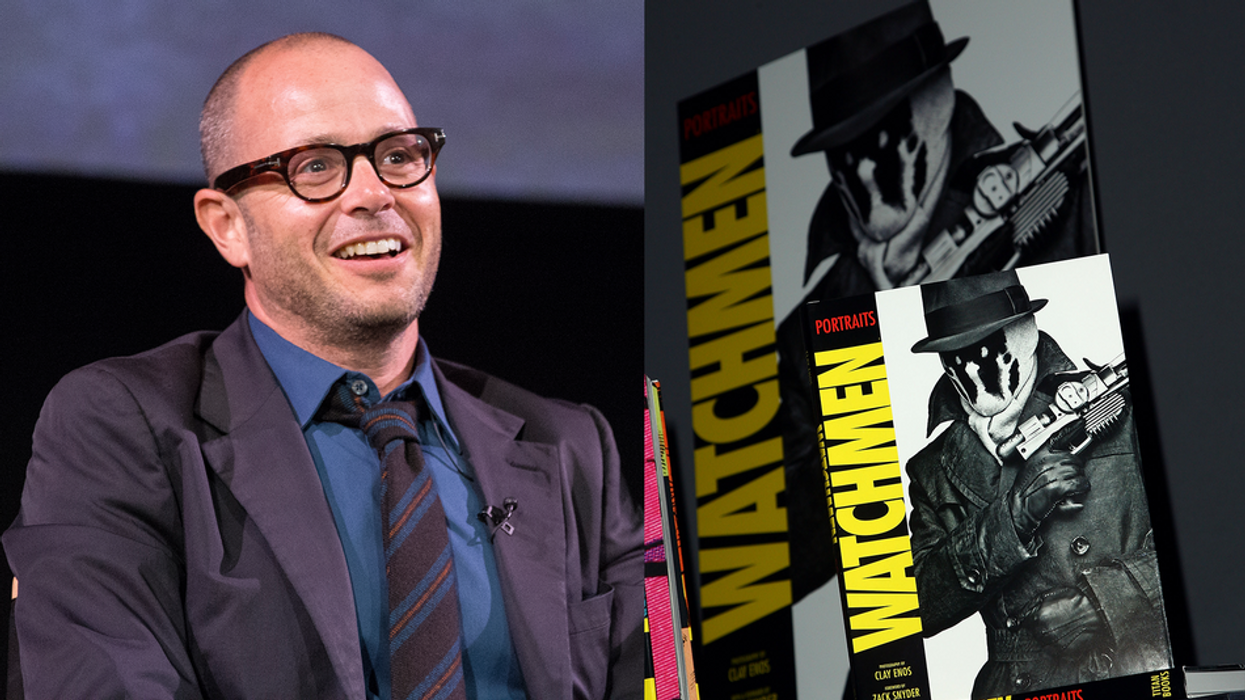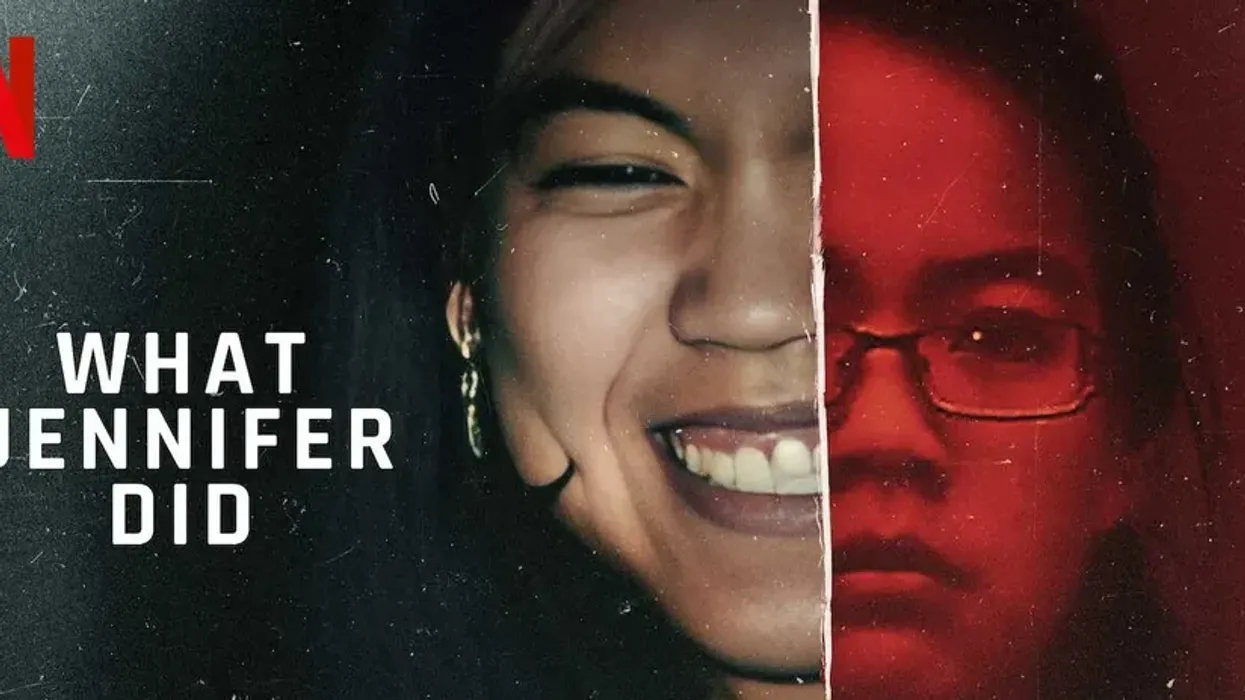How Does Damon Lindelof Avoid Toxic Nostalgia on 'Watchmen'?
Damon Lindelof had to adapt his favorite comic for his new HBO show and update the story based on our culture now. Here's how he avoided all the toxic nostalgia doing it.

Watchmen is a seminal piece of literature that launched a thousand careers. Damon Lindelof remembers being handed the book when he was 13. At the time, it definitely felt "adult" to him.
Now, 33 years later, Lindelof prepares for the launch of his new Watchmen television series on HBO. It's every fan's dream, but one that came with a daunting task before it: How do you adapt the things you love?
The seminal pieces of art that have already had people try and fail to create them? And how can you do it without the nostalgia for the original piece?
Lindelof recently sat down with Rolling Stone to answer some of those questions.
Lindelof first read the comics in his teens, but reads them now, again and again, to find new layers. In fact, when they opened the Watchmen writers' room, they created a sort of book club.
The idea was simple enough: Everyone read an issue every few days, and then they sat and diagrammed them almost frame by frame.
In doing that task, Lindelof found new layers to the story.
It's one thing to be inspired by Watchmen -- I mean, we all kind of got that Lost's Desmond Hume was inspired in part by Doctor Manhattan -- but it's another beast adapting the story.
Lindelof says that Zach Snyder and his adaptation faced an impossible task. He was forced to play the hits, and while he did them well, it's hard to say that he truly made Watchmen work and connect the way it seemed intended. So how does Lindelof sit to write this new version? And how can a story that takes place years after the graphic novel still be considered part of the world?
Rolling Stoneasked the tough questions, like: What would you say to someone who looks at this and asks, since it’s so different from the comic, “What’s your justification for calling this Watchmen?”
Lindelof's answer:
My justification is there are characters from the original Watchmen. And more importantly, we inherited a world from the original Watchmen that is in continuity with this world. Everything that happened in those 12 issues, happened. We’re not erasing or changing any of it. Therefore, to not call this television show Watchmen would be disingenuous, and probably illegal. I feel like this is a continuation of, and in conversation with, the original Watchmen. Here’s another instance where I want to punch myself in the face: I called this thing a remix, because it doesn’t feel like a sequel to me. But it does by the traditional rules of a sequel, in that this chronologically follows the original. But it’s also kind of a prequel, because this story starts in 1921, which predates any of the events of the comic.
Lindelof added:
I tried to make the Watchmen that I thought I would want to see as a fan. There are people who do adaptations and go, “I had to put the book aside in order to do my job.”
But how does this address the nostalgia at hand? The stuff the fans expect to see there?
Lindelof expanded on this idea:
"Another idea that really captivated me thematically about this season of television is the idea of nostalgia. Nostalgia is a perfume that Adrian Veidt is basically selling at the time of the original Watchmen, as he is preparing to move into his new scent, Millennium. This is something that’s kind of cribbed from Midnight in Paris: The moral of that movie is that every generation feels like the generation before theirs was the generation they wanted to live in. He wants to hang out with Hemingway, and Hemingway wishes he was there for the Moulin Rouge. I think nostalgia is dangerous. It’s toxic. I don’t want to get political, but this idea of, “Let’s travel back to the past,” particularly when you look at that idea through the construct of race and racial inequality in our country, that is bad. I see malevolence in Norman Rockwell paintings, and I wanted to talk about that, too."
Quotes like this make me all the more excited for Watchmen to debut.
Lindelof was probably unfairly maligned for a lot of his career. He was a writer working in the network and studio space. And still a show like Lost continues to be profound and exciting for viewers. When he found HBO and they let him tackle the critically-acclaimed but underseen The Leftovers, he proved that he not only knew how to start a story, but how to deliver powerful endings.
We've covered Alan Moore's displeasure with the idea of a Watchmen TV show. But what does Lindelof think about the idea of the inevitable remake of Lost?
"I’m sort of excited about it a little bit, or certainly curious what someone else would do with it. And definitely, that someone should not be me. Lost is over, I’m not interested in doing any prequels or sequels. We had three years from the moment they said we could end the show to do whatever we wanted with Lost, and we did it all. So my time holding the conch is over. It’s time to pass it along. I think there’s a version of Lost out there that’s incredible. The worst thing that could ever happen to that version is that the person [making it] is worried about pleasing me. I not only think it’s inevitable, but I welcome it. The idea of different storytellers getting their chance to do their spin on the story is the greatest cultural aspect of storytelling. We’re all just telling the same story over and over and over again. The only thing that differentiates it is who’s telling it."
What a generous and genuine response! Color me interested for a Lost reboot that takes its time to devote to answering as many questions that are asked. And find me tech avail to write on it, as well.
Are you excited for the new Watchmen? It premieres on HBO this Sunday, October 20, 2019 at 9 p.m. ET.







![Ethos, Pathos, Logos: 20 Effective Ways to Advertise [Infographic]](https://nofilmschool.com/media-library/ethos-pathos-logos-20-effective-ways-to-advertise-infographic.jpg?id=34064614&width=600&height=600&quality=90&coordinates=560%2C0%2C0%2C0)



